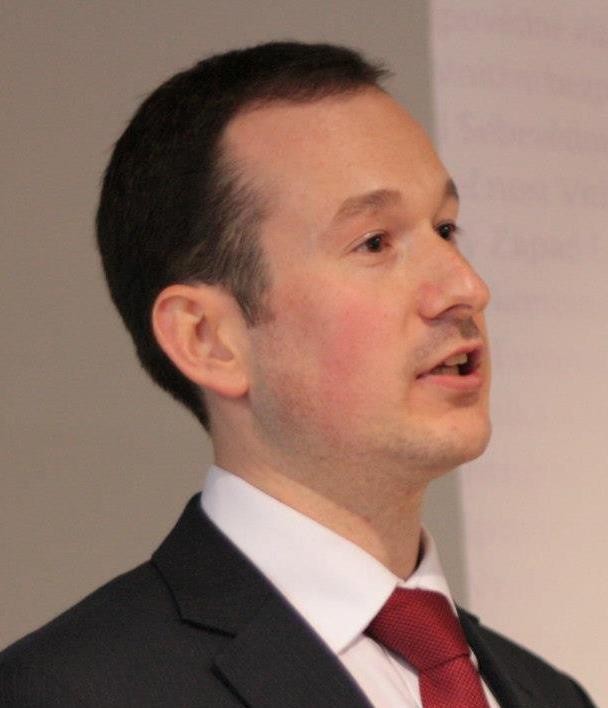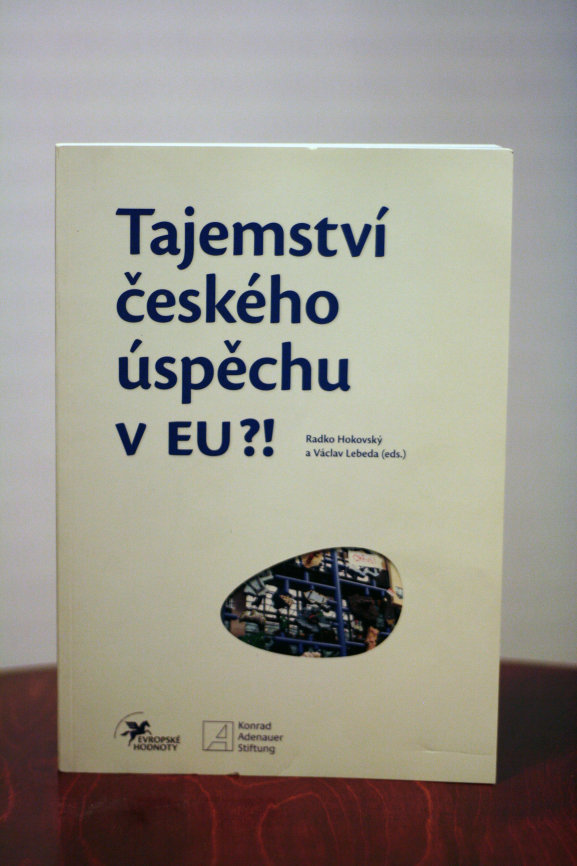On 25th April, Bohuslav Sobotka, leader of the Czech Social Democratic Party, introduced changes in his shadow cabinet after the party's recent political conference. The task of Sobotka's shadow cabinet is to prepare the party's election program and a government plan in case Social Democrats should win the elections. Interestingly, a spokesperson for EU affairs no longer appears on the list, but instead there is a spokesperson for sport.
This may be understandable considering marketing strategies or internal party business, but such steps obviously contradict Mr. Sobotka's criticisms of Nečas' government, namely that it neglects European affairs.
And why is it, that the shadow cabinet, let alone the government, should not lack a person responsible for European affairs?
One of the most important tasks of the new government will be leading the country out of the economic crisis and restoring economic growth. This is closely related with the coordination of specific measures on the European level, in particular designing and implementing economic and structural reform plans in cooperation with the European Commission, but also it is about the role of the Czech Republic in shaping the new eurozone architecture.
Formulating and voicing Czech interests in bodies of the European Union is also important when it comes to ensuring security in the Schengen Area, continuing liberalisation of the internal market and the position of the European Union towards the Syrian regime. These are some examples of the EU affairs which the Social Democrats apparently deem so unimportant as to be dealt with on the governmental level.
The fact that the Social Democrats shadow cabinet no longer covers European affairs undermines the authenticity of the criticism directed at the allegedly unconstructive and inactive European politics of Nečas' government.
At the European Values think-tank, we believe that the biggest opposition party, one that aspires to assume the main government responsibility, should have at least a spokesperson for European affairs, as it did previously. However, even more importantly, they should consider the Minister for European Affairs an essential part of the future cabinet, a fully-fledged member of the government, a coordinator and embodiment of the state policy towards the EU.

Those EU member states that are traditionally the most effective when it comes to voicing and achieving their interests have their Ministers for European Affairs, whether it be relatively small countries such as Denmark and Finland, or bigger ones such as France or Italy.
If the Czech Republic and Social Democrats take their statements about active and constructive protection of Czech interests in the European Union seriously, they should not omit European affairs in their government structure plans because of petty-minded inside reasons, as this is a matter of strategic and statesmanlike importance.
Explore more on the topic in our policy paper or in our publication "Tajemství českého úspěchu v EU ?!. (See pages 211-216 in English)

Radko Hokovský
Chairman and Executive Director of European Values Think-Tank
 Přidejte si Hospodářské noviny
mezi své oblíbené tituly
na Google zprávách.
Přidejte si Hospodářské noviny
mezi své oblíbené tituly
na Google zprávách.
Tento článek máteje zdarma. Když si předplatíte HN, budete moci číst všechny naše články nejen na vašem aktuálním připojení. Vaše předplatné brzy skončí. Předplaťte si HN a můžete i nadále číst všechny naše články. Nyní první 2 měsíce jen za 40 Kč.
- Veškerý obsah HN.cz
- Možnost kdykoliv zrušit
- Odemykejte obsah pro přátele
- Ukládejte si články na později
- Všechny články v audioverzi + playlist







